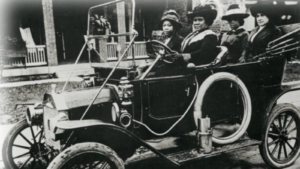Maya Angelou, born Marguerite Annie Johnson, was a renowned American author, poet, and civil rights activist. She is widely celebrated for her profound and deeply moving works that touched on a broad range of topics including racism, identity, and human resilience. In this article, we will explore the life and legacy of Maya Angelou and how her contributions to literature and society have made her an iconic figure.
Early Life and Career
Maya Angelou was born on April 4, 1928, in St. Louis, Missouri. Her parents divorced when she was just three years old, and she and her older brother, Bailey, were sent to live with their grandmother in rural Stamps, Arkansas. It was during this time that Angelou discovered her love for literature and began writing poetry. At the age of seven, she was sexually assaulted by her mother’s boyfriend, and as a result, she became mute for several years.
Angelou’s love for the written word eventually led her to become a writer, a singer, and a dancer. In the 1950s, she moved to New York City and joined the Harlem Writers Guild. She then began performing in nightclubs and released her first album, “Miss Calypso,” in 1957. However, her biggest literary breakthrough came with her 1969 memoir, “I Know Why the Caged Bird Sings,” which became a bestseller and catapulted her to fame.

Literary Works and Achievements
Maya Angelou’s literary works were characterized by their lyrical beauty, emotional depth, and a powerful voice that resonated with readers across the world. Her works touched on a range of topics, including racism, sexism, poverty, and personal identity. Her most famous works include “I Know Why the Caged Bird Sings,” “Gather Together in My Name,” “Singin’ and Swingin’ and Gettin’ Merry Like Christmas,” and “The Heart of a Woman.” Angelou’s poetry was also highly regarded, and she was appointed as the Poet Laureate of the United States in 1985.
In addition to her literary achievements, Angelou was also an outspoken civil rights activist. She worked closely with Dr. Martin Luther King Jr. and Malcolm X during the 1960s, and she was involved in the movement for equal rights for African Americans. She also campaigned for women’s rights and was a vocal advocate for the LGBTQ+ community. Her activism was an integral part of her identity, and it shone through in her literary works.

Legacy and Impact
Maya Angelou’s legacy continues to inspire and empower people around the world. Her works have been translated into over 40 languages, and her poetry is widely studied in schools and universities. Her words have resonated with people across generations, and her message of hope, courage, and perseverance remains as relevant today as it was during her lifetime.
Angelou’s impact on the literary world is immeasurable. She paved the way for generations of writers of color and gave a voice to those who were marginalized and oppressed. She was a trailblazer, an icon, and a literary giant whose contributions will continue to be felt for many years to come.
In conclusion, Maya Angelou’s life and legacy are a testament to the power of words and the indomitable human spirit. Her works continue to inspire and empower people across the world, and her activism has left an indelible mark on history. Maya Angelou was not only an iconic writer but also a human rights activist who used her platform to create change in the world. She has left a lasting impact on literature, society, and the world at large.




Responses